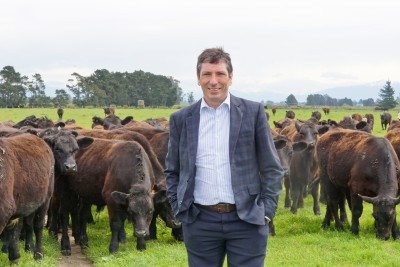 New OSPRI CEO brings primary sector expertise to the fight against animal disease
New OSPRI CEO brings primary sector expertise to the fight against animal disease
OSPRI has welcomed its new CEO Sam McIvor, after eight years as chief executive of Beef + Lamb New Zealand (B+LNZ) and NZ Meat Board.
Sam has plenty of experience operating within the primary sector. Growing up on a sheep and beef farm in Manawatū and graduating from Massey University with Agriculture and Business qualifications, Sam has worked in or alongside the primary sector almost his entire life including early career stints in farm consultancy, vegetable processing, sheep and beef R&D and extension.
Sam has held other CEO roles with New Zealand Pork and Preston Corp Limited, a Wellington based meat wholesale, retail and logistics company.
Working within the primary sector has been a hugely fulfilling experience for Sam.
“I've had a great variety of roles which have touched every part of the value chain from conception to consumption. Our primary sector is massive for New Zealand’s economy so being in roles that have an industry-wide impact is both challenging and rewarding."
This is not McIvor’s first experience of OSPRI. Before joining B+LNZ, Sam had a contract role with OSPRI encompassing the NAIT and TB programmes.
“During my last stint with OSPRI I grew an understanding and passion for the organisation and its role within the primary sector and New Zealand. I’ve only been back three weeks, but I’m really enthused by OSPRI’s work and the commitment of the people here”
Having been on both sides of the fence, McIvor sees a good opportunity to further grow the relationship with the farming community and MPI who is the custodian of the biosecurity system.
“Having been involved in governance of the M. bovis response and working in the pork industry during an exotic disease incursion, I’ve come to understand the impact on farmers be it the financial cost, productivity or the mental health cost an exotic disease infection can bring.”
“As OSPRI it’s our job to as rapidly and cost effectively as possible remove these diseases from the sector.”
Sam’s focus is on OSPRI’s core functions of livestock traceability and the eradication of two diseases – bovine tuberculosis and Mycoplasma bovis. But he knows that industry will have other needs from OSPRI in the future.
“Livestock traceability is becoming increasingly important as the expectations of our customers and international trading partners change. Farmers and industry have already mentioned the opportunity to better manage or eradicate other endemic diseases.”
Good traceability and effective disease management go hand-in-hand, and it takes all parts of the industry to succeed. Continuing to grow relationships with farmers other industry participants will be a key focus for McIvor.
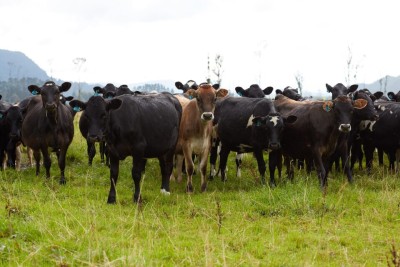 Big step for a community fighting TB
Big step for a community fighting TB
After four years, herds in the West Coast settlement of Hari Hari are now TB free. To protect the herds, further work is needed to ensure possum and other predator numbers are kept low enough to eradicate TB in the area.
In this outbreak, there were a total of 17 herd breakdowns of infection, making up a quarter of the total herds in the small farming community.
“It’s a significant step for the community of Hari Hari, neighbouring areas in the West Coast region and the national TBfree plan”, says OSPRI Chief Executive, Sam McIvor.
“Getting rid of TB in their herds is a huge achievement that takes a systematic approach and coordinated effort over many years. It takes a team effort, and we work with the community and partner agencies to design and implement a disease control response plan that is tailored for their area.” Over the past 30 years, there have been outbreaks in the farmland of Hari Hari following a 5 – 10 year cycle. Prior to the 2019 outbreak, there were no infected herds for four years.
As part of the disease control plan, major work carried out included regular herd TB testing and significant amounts of possum control on farmland and surrounding areas of Hari Hari and the Waitaha Valley, using both ground and aerial possum control methods.
“Our surveillance of wildlife in the surrounding native bush shows us that the infection problem may remain in the Upper Whanganui, and that we do need to do another round of aerial treatment there to clean up the remaining infection, whilst also maintaining low possum numbers across the whole area.
“TB is a resilient bug, and we need to keep our foot on the pedal to wipe it out.”
Over the coming years, disease control work will continue with regular monitoring and testing of livestock and wildlife for any signs of TB.
TB freedom in Hari Hari cattle brought the total number of TB-infected herds across the country down to 12, the lowest number on record. This compares to 1995 when there were an estimated 1,700 TB-infected herds.
“The number of infected herds may bounce around a little bit but importantly, it is trending down overall. Ongoing biosecurity vigilance and ensuring NAIT records are up to date are critical ingredients in continuing our progress.”
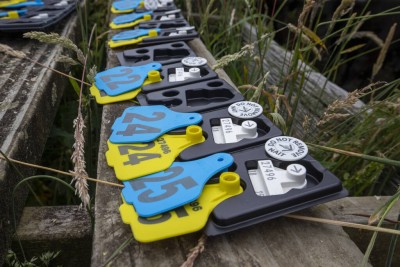 Improvements to reporting tag issues online
Improvements to reporting tag issues online
In response to farmer feedback, we've updated the tag reporting page on our website.
You can use this page to report any problems you may be experiencing with NAIT tags, including durability, retention, readability and performance.
You can view the new and improved page using the link below.
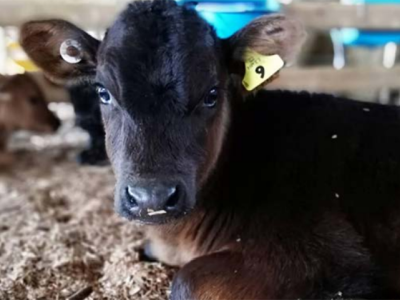 Calving - Be a mate, update NAIT
Calving - Be a mate, update NAIT
Protect your farm and support lifetime traceability by fulfilling your NAIT obligations this calving season.
Calving is now underway. We know this is a busy time for farmers, but it’s also important to ensure you’re meeting your NAIT requirements.
Keeping track of farm animals throughout their lifetime means we can respond quickly and effectively to biosecurity risks or disease outbreaks. Being proactive reduces the threat to your livelihood, and the time and money needed to trace and eliminate disease from infected livestock.
For helpful guidance around calving this year, check out the links below.
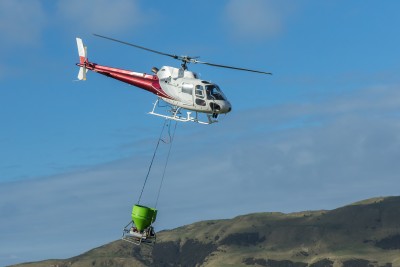 Consultation opens for proposed National Aerial Operations Plan 2025
Consultation opens for proposed National Aerial Operations Plan 2025
We're inviting feedback on the National Aerial Operations Plan 2025, which outlines our proposed TBfree pest control operations for next year.
Possums are the wildlife source of TB infection in cattle and deer in New Zealand. This means key activities for the TBfree programme are:
- possum control
- livestock TB testing
- animal movement control.
We’ve significantly reduced TB infection in cattle and deer herds through careful use of 1080.
We will use your feedback on the nature, boundaries and timing of proposed operations to help inform the final proposal.
Feedback is due by 30 September 2024.
Find out more about the plan, and how to submit feedback on the consultation page below.

